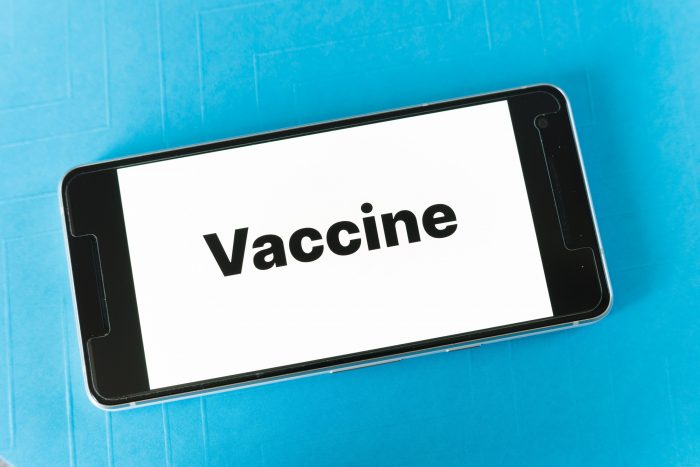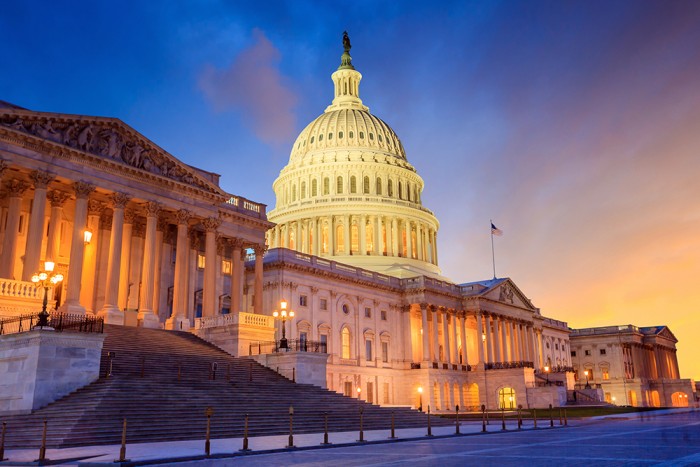Budget Reconciliation Package Faces Additional Hurdles
ANCOR Stateside Report — July 25
Reminder: Register to Attend One of RCPA’s Regional Meetings and Telehealth Convenings
We invite you to attend an RCPA regional meeting in your area on any of the below dates in August or September 2022. The meetings will focus on RCPA issues, including:
- Legislative information;
- Division and conference updates;
- Department of Human Services (DHS) updates; and
- Status of the CCBHC/ICWC program in PA.
We will also provide an update to the addiction treatment community on our advocacy efforts to ensure the Opioid Use Disorder Centers of Excellence transition from a DHS-directed payment model to a state plan service is fair and manageable for providers. In addition, ProVantaCare (our sister managed care entity) will review its efforts, goals, and upcoming opportunities.
Immediately following lunch, we invite RCPA members and advocates to participate in the Delta Center Convening on Telehealth. RCPA has collaborated with National Council on bringing together primary care associations (PCAs) and behavioral health state associations (BHSAs) to advance policy, payment, and practice changes that will benefit the millions of people served by health centers and community behavioral health organizations (CBHOs). RCPA is the recipient of grant funds through the Delta Center to cultivate health policy and a care system that is more equitable and better meets the needs of individuals and families.
In this forum, we will engage in roundtable discussions with consumers and practitioners on their opinions on the effectiveness, challenges, and future use of telehealth to deliver behavioral health services. The information gathered will guide the PA Delta Center team in its advocacy for developing regulations, bulletins, and practices that ensure equity and access to services for all communities. Your participation will be key to our ongoing work in establishing a healthy and sustainable telehealth footprint in Pennsylvania. For additional information, please contact Jim Sharp, Director, Children’s Division.
Please see the full agenda here. Registration is required.
Monday, August 1 — RCPA Central Regional Meeting and Delta Center Telehealth Convening
Sheraton Harrisburg Hershey Hotel, 4650 Lindle Road, Harrisburg, PA 17111
Register Here
Tuesday, August 2 — RCPA NE Regional Meeting and Delta Center Telehealth Convening
Holiday Inn Wilkes Barre, 600 Wildflower Drive, Wilkes-Barre, PA 18702
Register Here
Friday, August 19 — RCPA Western Regional Meeting and Delta Center Telehealth Convening
RLA Learning and Conference Center, 850 Cranberry Woods Drive, Cranberry Township, PA 16066
Register Here
Friday, September 16 — RCPA SE Regional Meeting and Delta Center Telehealth Convening
The Alloy King of Prussia, a DoubleTree by Hilton, 301 W. Dekalb Pike, King of Prussia, PA 19406
Register Here
DDAP Assessing Changes to Confidentiality Under Act 33
On July 7, 2022, Gov. Wolf signed Act 33 of 2022, which amends Act 63 of 1972 as it pertains to confidentiality of substance use disorder patient records. Act 33 incorporates federal confidential protections under the Health Insurance Portability and Accountability Act (HIPAA) and 42 CFR Part 2. Act 33, which took effect immediately, prohibits the Pennsylvania Department of Drug and Alcohol Programs (DDAP) from promulgating or enforcing a regulation that restricts any disclosure of records or information that is permitted by Act 33. DDAP is currently reviewing Act 33 to determine next steps as a regulatory agency and will be providing additional information and details on the DDAP website in the near future.
Recognizing the Impact of Race, Racism, and Inequity on Mental Health
Message from the Department of Human Services (DHS):
Mental health conditions can impact all individuals, regardless of race, ethnicity, gender, ability, class, sexual orientation, or other social identities. However, systemic racism, implicit and explicit bias, and other circumstances that make individuals vulnerable can also make access to mental health treatment much more difficult.
Mental health care is important to a person’s overall wellbeing. Mental health conditions are treatable and often preventable. Yet many people from historically marginalized groups face obstacles in accessing needed care. These obstacles, which have only been made worse by the COVID-19 pandemic, may include lack of or insufficient health insurance, lack of racial and ethnic diversity among mental health care providers, lack of culturally competent providers, financial strain, discrimination, and stigma. Moreover, immigration status, economic conditions, education levels, and access to public health benefits are just a few differences that can adversely impact people’s experiences when seeking mental health care.
Since 2008, July has been designated as National Minority Mental Health Awareness Month, a time to acknowledge and explore issues concerning mental health within minority communities and to destigmatize mental illness and enhance public awareness of mental illness among affected minority groups across the nation.
Taking on the challenges of mental health takes all of us.
All of society benefits when all people have access to mental health care, supportive social conditions, freedom from stressors that can compromise mental health, and access to other resources needed for health. We all have a role to play in promoting health equity.
Learn more about Minority Mental Health Month:
- Bebe Moore Campbell National Minority Mental Health Awareness Month — NAMI
- National Minority Mental Health Awareness Month — U.S. Dept. Health and Human Service Office of Minority Health
- BIPOC Mental Health Month — Mental Health America
What is Mental Health Equity?
Mental health equity exists when everyone has a fair and just opportunity to reach their highest level of mental health and emotional wellbeing.
Mental health disparities are defined as unfair differences in access to or quality of mental health care according to race and ethnicity. Disparities can take on many forms, are quite common, and are preventable. They can mean unequal access to good providers, differences in insurance coverage, or discrimination by doctors or nurses.
Mental Health Equity Statistics
- 1 in 5 U.S. adults experience mental illness each year
- 1 in 20 U.S. adults experience serious mental illness each year
- 1 in 6 U.S. youth aged 6–17 experience a mental health disorder each year
- 50 percent of all lifetime mental illness begins by age 14, and 75 percent by age 24
- Suicide is the second leading cause of death among people aged 10–34
RCPA Member Devereux Pennsylvania Invests in Technology and Fitness

Department of Health Creates the Non-Traditional Infection Control Consulting (NICC) Team
The COVID-19 pandemic has highlighted the fundamental role that infection prevention and control (IPC) practices play in the delivery of safe healthcare and sustaining a strong, healthy community. The pandemic has taught us that not all healthcare settings have the same needs, abilities, or serve the same populations, and because of that, each facility may have their own set of unique IPC challenges. Behavioral health/psychiatric facilities, drug & alcohol treatment centers, and group homes have been identified as the state’s non-traditional healthcare settings, and through experience, we have learned that these sites may require additional IPC support and resources. Recognizing this need, DOH has created the Non-traditional Infection Control Consulting (NICC) Team.
The NICC Team is a group of certified, experienced infection preventionists with commitment to empowering and supporting non-traditional healthcare settings throughout the Commonwealth of Pennsylvania as they aim to reduce transmissible diseases and conditions. To assist in promoting integration of best practice IPC principles into all roles and aspects of care in these settings, the NICC Team can provide the following free of cost services:
- Infection prevention and control consultations;
- Guided facility assessments;
- Policy and guidance interpretation and recommendations (DOH, CDC, CMS, DHS, etc.);
- Education and training resources; and
- Tools and resources to support facility needs, including audit tools, checklists, and fact sheets.
Please review the more detailed information sheet about the team’s services and an introductory program flyer to share with non-traditional healthcare partners & facilities. This new resource is intended to increase awareness of IPC best practices as they aim to ensure patient safety in all PA healthcare settings.
CMS Releases First-Ever Home and Community-Based Services Quality Measure Set
The Centers for Medicare & Medicaid Services (CMS) released a State Medicaid Director Letter (SMDL 22-003) providing guidance for the first-ever Home and Community-Based Services (HCBS) Quality Measure Set, the first of two planned guidance documents from CMS.
The HCBS Quality Measure Set is included in the SMDL, starting on page 14. The list of measures includes the NQF number (if applicable), measure steward, and data collection method, as well as information on whether each measure addresses section 1915(c) waiver assurances and/or can be used to assess access, LTSS rebalancing, and/or community integration and HCBS settings requirements.
Most of the measures are derived from consumer surveys; CMS gives states the flexibility to select measures from the consumer survey of their choice from the following validated tools: NCI®-IDD, NCI-AD™, HCBS CAHPS®, and POM®.
Visit here for more information.
CDC Advisers Give OK to Novavax COVID-19 Shot for Unvaccinated Adults
















